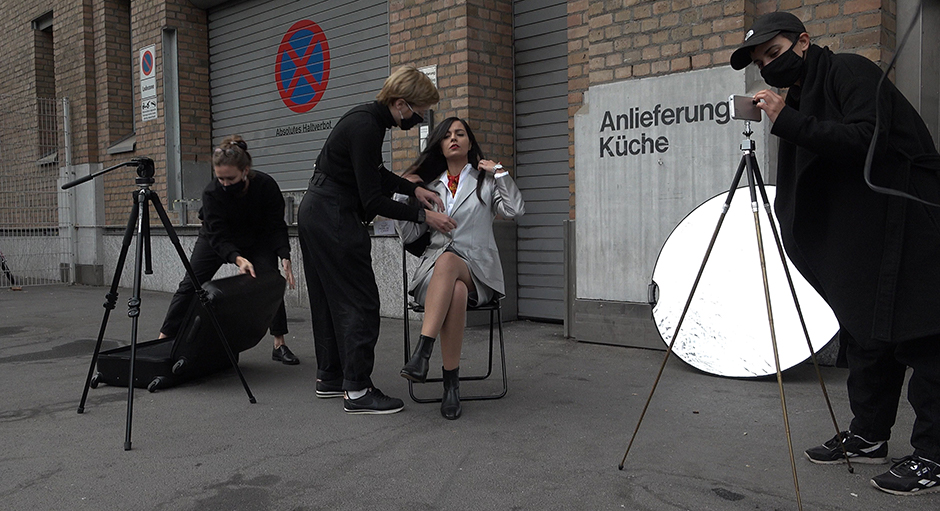“Jeder Mensch ist ein Künstler“, „Alle sind gleich“, „We, the people“ – eine Gruppe von Künstler*innen setzen während des Lockdowns diese Mottos in die Praxis um, indem sie einen Raum schaffen, wo jede*r mit ihnen gemeinsam kochen und essen kann. „Ada_kantine“ wurde so zu einer Alternative zu den institutionalisierten Versammlungen wie lokalen Parlamenten oder Theatern – Institutionen, die, obwohl sie innerhalb einer gegebenen Gemeinschaft für die Gemeinschaft gegründet werden, oft von dieser distanziert bleiben. Die während der Pandemie betriebene künstlerische Forschung praktizierte eine anarchistische Demokratieordnung, die neue Formen des Zusammenseins hervorbrachte.
In ihrem Buch über öffentliche Versammlungen hinterfragte die Philosophin Judith Butler die Bedeutung der ersten Worte der US-amerikanischen Verfassung: „We, the people“ wurde zum Motto für eine demokratische Welt, in welcher institutionelle Demokratie die politische Hauptidee und Grund zur Selbstgefälligkeit ist. Was heisst aber „wir“ und woraus besteht diese angedeutete Pluralität? Deren Mehrdeutigkeit hinterfragen die Künstler*innen (sind sie noch Künstler*innen?) durch eine soziale Praxis, die uns zur Diskussion einlädt. Sind wir bereit, uns darauf einzulassen, oder ziehen wir es vor, dass alles wieder zur Normalität zurückkehrt, wenn diese Zeiten vorbei sind? Diese und noch andere Fragen werden wir mit Julia Novacek, Video- und Performance-Künstlerin sowie Mitglied des Künstler*innen-Zusammenschlusses andpartnersincrime, diskutieren.
Nach der Anmeldung erhalten Sie die Zugangsdaten zu den Zoom-Sitzungen sowie weitere Informationen, wie Sie sich die Aufführung zur Vorbereitung online anschauen können.
UZH-Studierende, die an einer Anrechnung des Webinars als Modul interessiert sind, melden sich frühzeitig bei nina.seiler@uzh.ch.
“Everybody is an artist”, “Everyone is equal”, “We, the people” – a group of pandemic-locked artists put these slogans into practice by creating a space where everyone who is hungry can come and prepare food with them. “Ada_kantine” thus created an alternative to institutionalized assemblies in local parliament or theatres – institutions that are founded in a community for the community but tend to be at a remove from the community. The artistic research during the pandemic practiced an anarchist rule of democracy, bringing about new meanings of being together.
In her book about assembly, philosopher Judith Butler challenged the meaning of the first words of the American Constitution: “We, the people” became a motto for the democratic world in which institutional democracy is the main political idea and a reason for complacency. What does “we” mean and what does this plurality consist of? With full appreciation of this ambiguity, the artists (are they still artists?) of andpartnersincrime explore this question through social practice and invite us to the discussion. Are we willing to enter it or do we prefer everything to go back to normal when these times are over? We will discuss these and other questions with Julia Novacek, video and performance artist as well as member of the artistic union andpartnersincrime.
Please register by a week before the meeting by sending an e-mail to info@crisisandcommunitas.com. After registration, you will receive access to the zoom meetings and to the materials for discussion.
The webinar is organised by the SNFS research-project «Crisis and Communitas». UZH students who are interested in receiving credit for the webinar as a module should contact nina.seiler@uzh.ch
